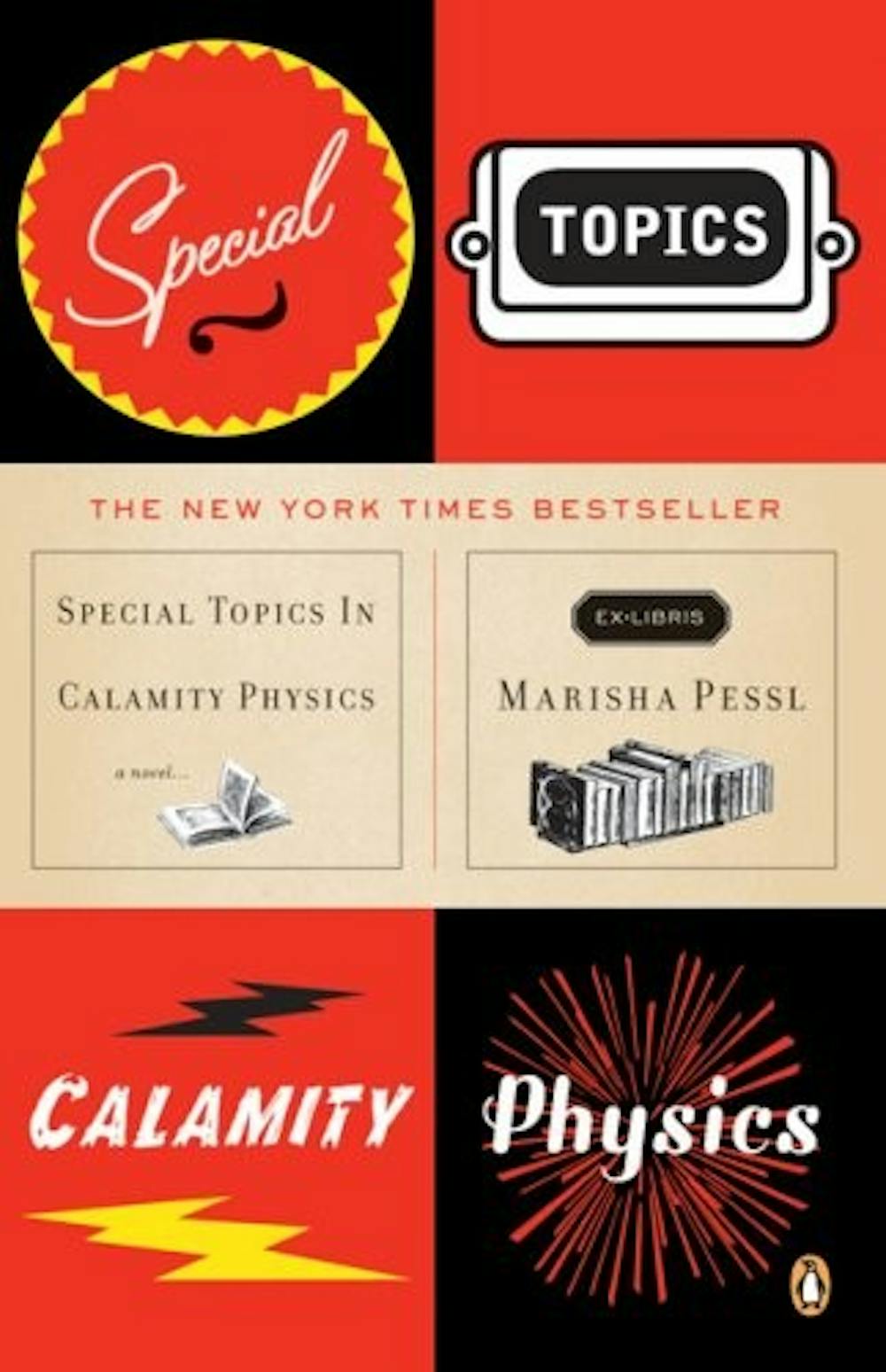No, the title doesn't pertain to this blog. I mean, who wouldn't want to read this blog, in all of it pre-templated glory, upon the first look? It just reeks of...standard Wordpress appearances...hm. That being said, let's move to the topic at hand, the initially off-putting and crushingly irritating, but ultimately fulfilling book, "Special Topics in Calamity Physics" by Marisha Pessl.
Yes, it may be old hat, having come out in the dark ages of 2006 (when a mysterious land known as "America" was led by a man named after shrubbery and people allowed their contemplations to spill over 140 characters) but books are like lost bits of change. They fall through the cracks much more easily than other bits of culture, they lack the wow and pizazz of movie trailers or the ubiquity of a hit song, but when you finally get around to searching for them, whether it be between the couch cushions of the library, you're all smiles.
Well, to be perfectly honest, I was completely sour after enduring the first 150 pages or so. The self-indulgent, prideful introduction, written in a elongated first-person prose that sought to prove to the world that the author was eloquent, intelligent and in no way putting such brilliance into the shoes of the narrator cooled me to the book initially. Usually when books, movies or anything begin with, "This is who I am, this is the important event that happened to me, but let's start at the beginning..." I roll my eyes, groan and move on with my life. It's a method that works fine with non-fiction, but its use in fiction usually falls flat for me. And Pessl fell into all of the holes first-time authors tend to find themselves at the bottom of, what with the obvious chip on her shoulder and the sentences so dense that they were veritable Congos scattered across the page.
The narrator, Blue Van Meer, is a genius raised by a equally brilliant widower father, a traveling college professor of such pretension and hypocrisy that every time he opened his mouth and allowed another intellectual Hallmark card to flutter out, I sneered and threatened to toss the book aside. Sure enough, I did. It sat next to my bed, having been swapped out for Alan Moore's "From Hell," morosely sighing every now and then from my nightstand, and I did my best to pretend to ignore its jealousy. When I finished Moore's thoroughly perfect masterpiece (but of course, everyone knows of "From Hell's" greatness) I initially moved on to Joseph Heller's "Something Happened," but "Special Topics..." still called my name.
Though "Something Happened" so far has proven itself to be a saggy-eyed, mopey and well-written departure from "Catch-22," I found myself simply not in the mood to sit down with a entirely depressing book. So "Special Topics..." received a second chance, and it slowly grew on me.
I hesitate to say exactly what it was that ultimately endeared me to the novel. It was certainly not the litany of literary references, or the annoying trite attempts for the book to resemble some sort of curriculum (it even has a final exam) nor was it a insurmountable connection to a character (though Blue proved herself by the end.) My first inkling is that by fulfilling my disdain for many of the characters, the novel perhaps satisfies some subconscious vindictiveness that comes out when I come into contact with literary characters. Comeuppances abound by the end of the book, and everyone is exposed for who they were.
Whatever the primal urges "Special Topics..." cared for, its belated climax (coming, oh, only a few hundred pages too late) is gripping, the limp and endless litany of teen angst of haughty intellectualism is pushed aside for a tight and brilliant series of unexpected twists and turns. The last fourth (maybe third, I'm not quite sure) of the book is so enjoyable that not only does it make the preceding blather completely worthwhile, but it kept me sitting in place for hours, eyes wide at every shock, feeling like a kid at the cliffhanger ending of a Saturday morning cartoon.
Pessl's characters spend so much time trying to convince the world or their cliques of their respective brilliance, and in doing so she tries to assert her own intellectual and literary superiority, but it wasn't until her book morphed into a undoubtedly satisfying read that I was convinced of her ability. So what if the book's beginning was terrible? She already has her endings down pat.
To boil everything down, "Special Topics..." is the exact opposite of Michael Chabon's "The Yiddish Policeman's Union." Whereas Chabon had me completely enraptured in his world and his characters, swept up in his sly detective story, his ending left me feeling bitter (the same can be said of "The Amazing Adventures of Cavalier and Clay"). "Special Topics..." had me skeptical from the get-go, but by the end, I was eagerly awaiting Pessl's next book.


